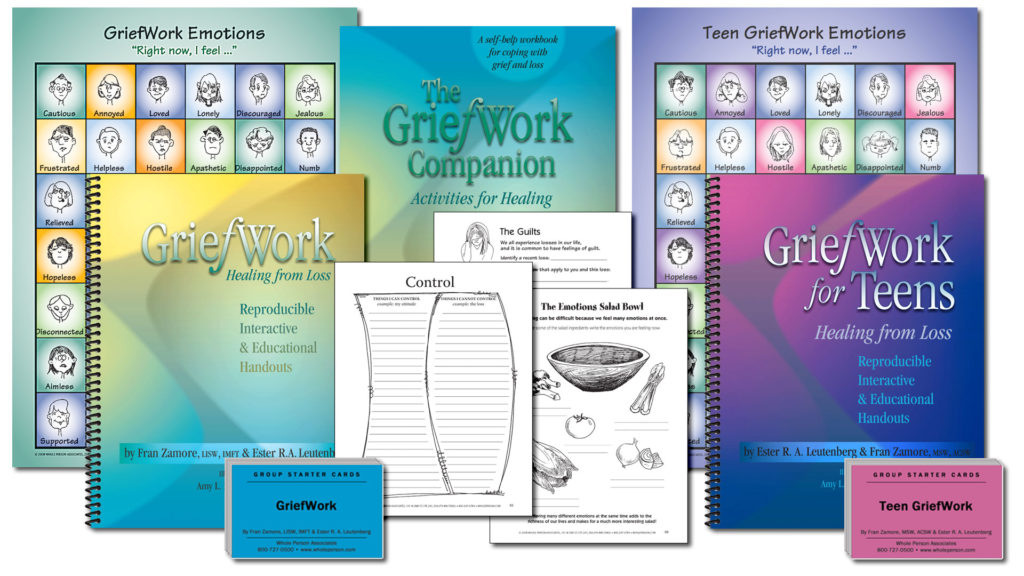One of the important aspects of grieving that has been largely overlooked is the relational aspect. Each person’s grief is unique because he or she:
- Had a unique relationship with the deceased (loving, ambivalent, challenging)
- Brings a unique personality and coping mechanism to the situation
- Has a particular world view which will impact how he or she enters the process
- Has ongoing relationships which may or may not be helpful
- Has a unique relationship with death
- Came to this particular loss with a unique history of dealing with earlier losses
- Has particular expectations about what dealing with the loss means and wonders how dealing with the loss “should” proceed

The grieving process can occur in many types of losses; although we focus on loss by death, the concepts presented can be applied to other losses.
We view the grieving experience as a long, winding path that curves back on itself, traverses hills and valleys, and has many obstacles. It is a path that is challenging to negotiate, time-consuming to travel along and may provide opportunities for personal and spiritual growth. Grieving is a part of the human experience. A person attached to someone will mourn the loss of that relationship and miss that person’s physical presence. We understand this as a simple truth. Remembering this truth does help some people cope with the loss because they are able to be somewhat philosophical.
The process may be more complicated when the relationship with the deceased was either ambivalent or challenging. The reality, for most people, is that relationships are not easy to put into these categories. Most long-standing relationships are at times loving, at times ambivalent, and at times challenging. The degree of challenge will likely add to the complex feelings that the person who is grieving will experience. Along with the death of the person, the bereaved may also grieve the reality of unmet needs represented by the relational difficulties.The death of a loved one is a major life event. When assessing the progress of a grieving client, the facilitator must be aware of that person’s level of functioning in all domains prior to the loss.
Definitions
BEREAVEMENT refers to the experience of the loss of someone through death.
GRIEF is the reaction to bereavement. It is a universal response to any loss.
MOURNING refers to the expression of grief in culturally specific ways.
LOSS refers to no longer having somebody or something.
Kinds of Losses
Loss is a part of everyone’s life at some point. Each person reacts to a loss in a personal way. As well as the emotional response, loss also has physical, intellectual, behavioral, social and philosophical dimensions. Response to loss is varied and is influenced by beliefs and practices.
People’s losses, no matter what, are important and often devastating to them. They represent the disappearance of something or someone cherished.
Some examples of loss:
- Addiction
- Death
- Divorce
- Failed business venture
- Faith
- Financial security
- Home
- Independence
- Mental ability
- Pet
- Physical health
- Plans, hopes and dreams
- Relationships
- Role in life
- Sense of safety/security
- Status
- Treasured possessions
Many of the handouts in this book will apply to some of the losses and to most people. Carefully choose the handouts given to each person. If handouts are being distributed to everyone in a group, instruct participants to complete only the parts applicable to them.
-From the Introduction to GriefWork: Healing from Loss by Fran Zamore, LISW, IMFT and Ester R.A. Leutenberg
Use the Coupon Code GRIEF2020 at checkout prior to June 1st, 2020, and receive 30% off of the following workbooks (print and/or PDF eBooks) from our GriefWork Series:
